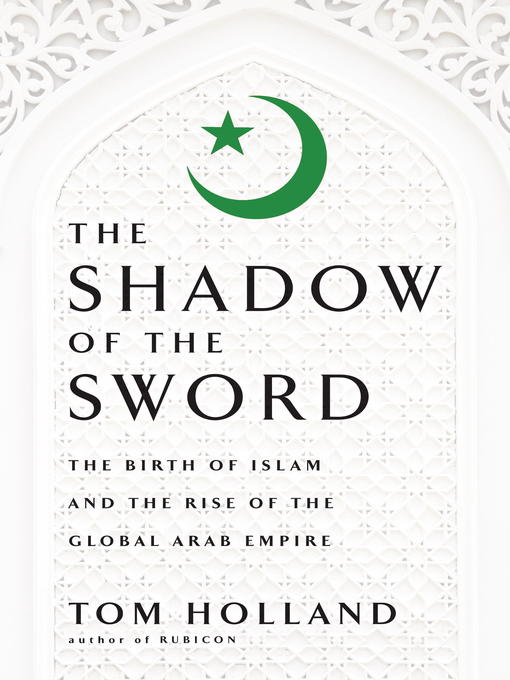
In the Shadow of the Sword
The Birth of Islam and the Rise of the Global Arab Empire
کتاب های مرتبط
- اطلاعات
- نقد و بررسی
- دیدگاه کاربران
نقد و بررسی

April 1, 2012
Elegant study of the roiling era of internecine religious rivalry and epic strife that saw the nation of Islam rise and conquer. British historian Holland (The Forge of Christendom: The End of Days and the Epic Rise of the West, 2009, etc.) first tells the tortuously involved tale of the rise and fall Persia, or what he calls Iranshahr, an empire imbued by the spirit of the prophet Zoroaster, who believed that a terminal confrontation between good and evil was imminent; it was also heavily influenced by the Jews, natives of Judah in diaspora to Mesopotamia, who were at work transcribing the written record of their rabbis and looking forward to a Messiah who would offer redemption from suffering. Meanwhile, Rome, whose own Virgil had broadcast its glorious mission statement, "a dominion without limit," in the Aeneid, was besieged by barbarian tribes and on its knees by the first centuries CE, threatened by an implacable rebellious heresy, Christianity. Yet another current began to swell, similarly foretold in the Old Testament scriptures, such as in the account of Abraham's begetting a son by the Egyptian maid Hagar, who would become Ishmael, heir to a great people, and Daniel's terrifying apocalyptic vision of four beasts ruling in succession over mankind. So what was this new nation rising from the feral wanderings of "the wolves of Arabia," seemingly portended in the bubonic plague decimating the Fertile Crescent in the sixth century? Holland portrays the age as ripe for the revolutionary visions of the Prophet, who certainly drew most self-consciously from tenets of previous People of the Book. Holland confronts questions in the Quranic text head-on, providing a substantive, fluent exegesis on the original documents. Smoothly composed history and fine scholarship.
COPYRIGHT(2012) Kirkus Reviews, ALL RIGHTS RESERVED.

May 1, 2012
Undertaking the delicate task of describing the origins of Islam, Holland notes Western scholarship that is skeptical about Islamic scholarship's narratives concerning the life of the prophet Muhammad, the compilation of the Qur'an, and even how Mecca became the geographical focus of Islamic worship. So the refuge Holland seeks in the evidentiary desert is the geopolitical world of the time. It was dominated by the Eastern Roman Empire and the Sassanian Persian Empire, whose political conflicts and religious doctrines (Catholicism and Zoroastrianism, respectively) reverberated mutedly but apparently audibly among the pagan tribes of Arabia. Holland allows that his narratives of these dynamics constitute provisional answers in his inquiry into the rise of Islam, but he writes them in an exuberantly ornate style that captures late antiquity's prevalent belief that nothing on the lowly earth occurred but by the will of God. God's will, though, was, as ever, difficult to divine, and Holland's interpretations of debates among clerics and revelations by prophets before Muhammad carry the reader toward Holland's plausible thesis for Islam's success in toppling the Sassanians and humbling the Romans.(Reprinted with permission of Booklist, copyright 2012, American Library Association.)

























دیدگاه کاربران